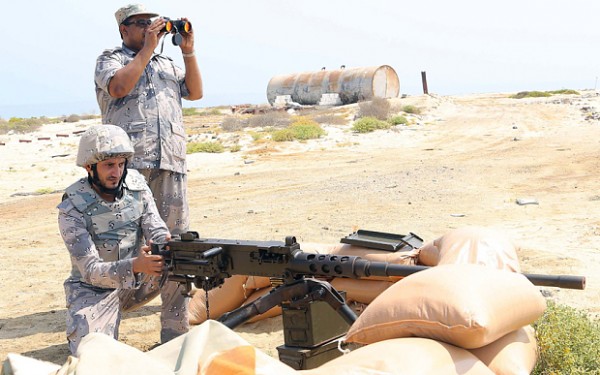
At the same time, the struggle for the strategic port of Aden intensified, with the Iranian backed Shiite Houthi insurgents overrunning several parts of the city, including the palace vacated last week by internationally recognized President Abu Rabbu Mansour Hadi, according to witnesses.
The gains came despite a concerted campaign of air and naval strikes by the coalition led by Saudi Arabia, which is trying to crush the rebellion.
The attack on the security prison took place in the port of Al-Mukalla, the country’s fifth-largest city, in Hadhramaut province, a stronghold of Al Qaeda’s Yemen affiliate. The largely Sunni Muslim fighters with Al Qaeda also looted the local branch of the Central Bank, security officials said, and set up roadblocks across the city.
The episode could point to a dangerous new phase in the battle between Houthis, the Shiite insurgents, and the Saudi-led coalition. Analysts had already warned that armed groups such as Al Qaeda’s Yemen affiliate or militants professing loyalty to the Islamic State would probably seek to capitalize on the disorder generated by the ongoing fighting.
The Houthis’ offensive has been going on since last year, but the Saudi response was galvanized when the insurgents began marching on Aden, which had been the Hadi’s final stronghold before he fled last Wednesday. The Saudi-headed campaign of airstrikes began the next day.
The Houthis are aligned with Shiite Iran and with the country’s former strongman Ali Abdullah Saleh, who was deposed in 2012 but maintained considerable power as well as a grip on many elements of the country’s military. These military units, many of them elite forces, have helped the Houthis cement their gains after they seized the capital, Sana, last year.
The tumult in Yemen has derailed a U.S. campaign of drone strikes against the country’s branch of Al Qaeda, known as Al Qaeda in the Arabian Peninsula. It is considered one of the terrorist group’s most active and dangerous franchises.
The Yemen fighting has also heightened regional sectarian rivalries, with Iran bitterly denouncing the role of Saudi Arabia, the Persian Gulf’s main Sunni Muslim power. Saudi Arabia and its Sunni allies have been alarmed by U.S.-led efforts to strike a nuclear accord with Tehran, and with other Iranian muscle-flexing in conflicts including the civil war in Syria.
LA Times

Leave a Reply
You must be logged in to post a comment.